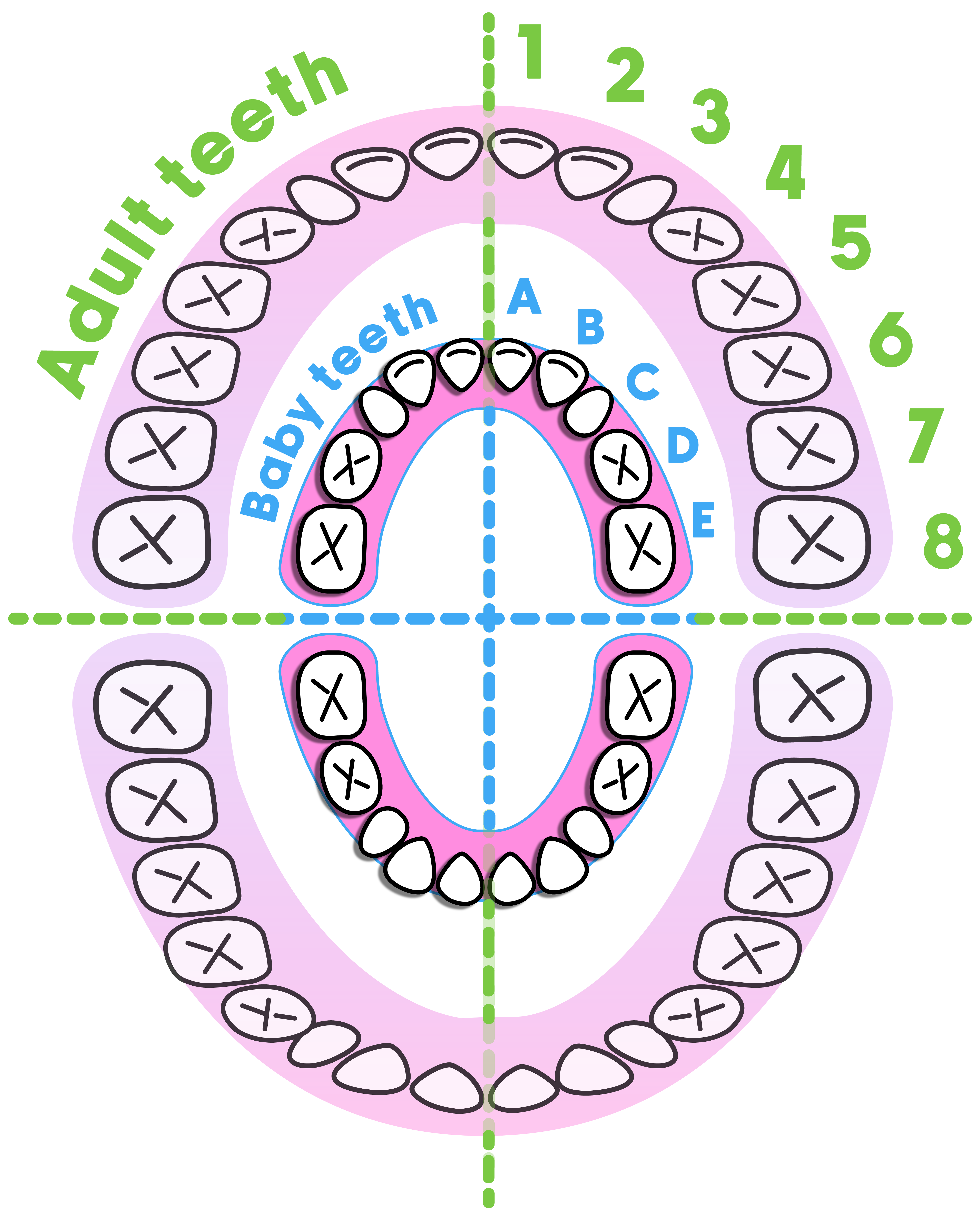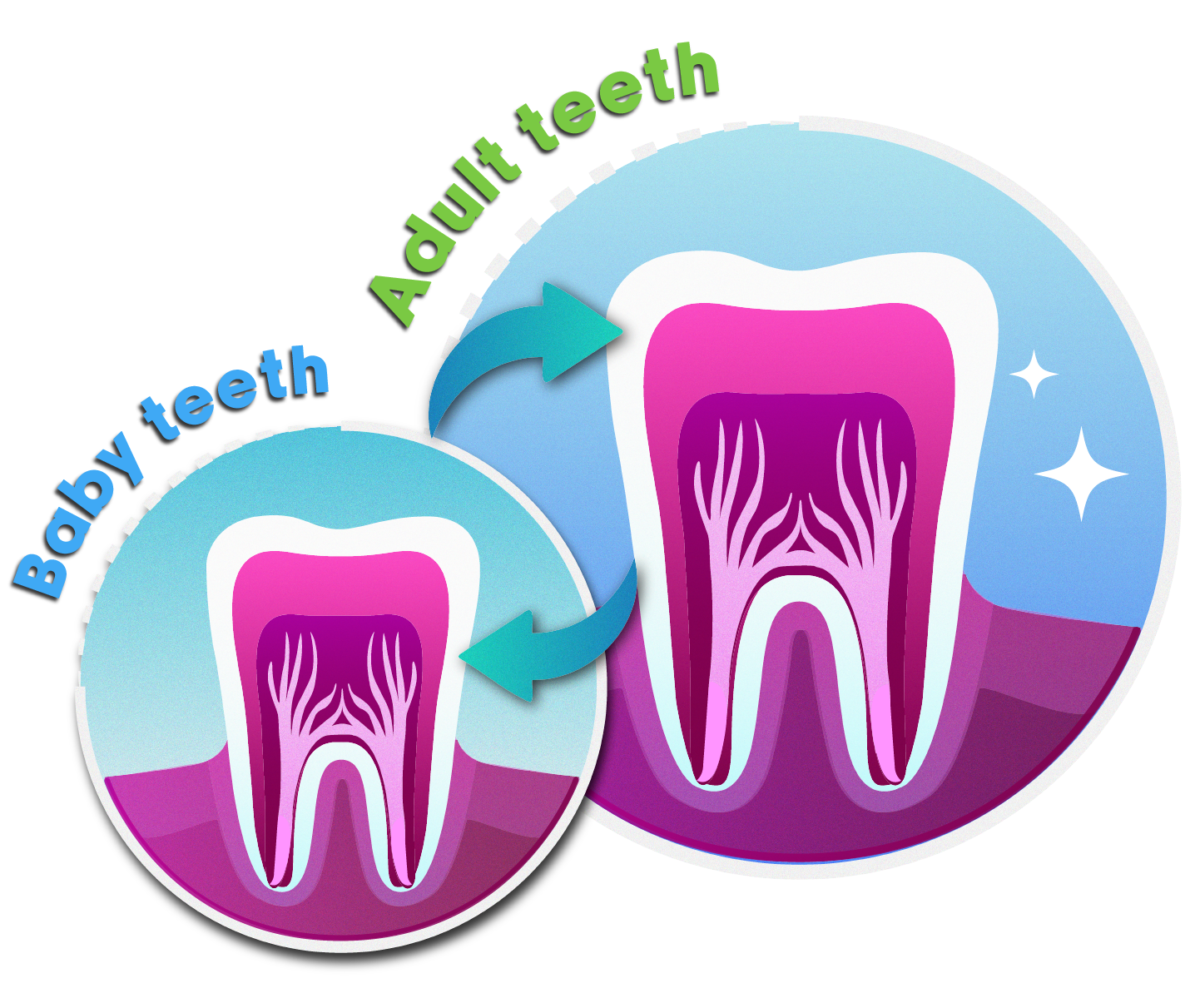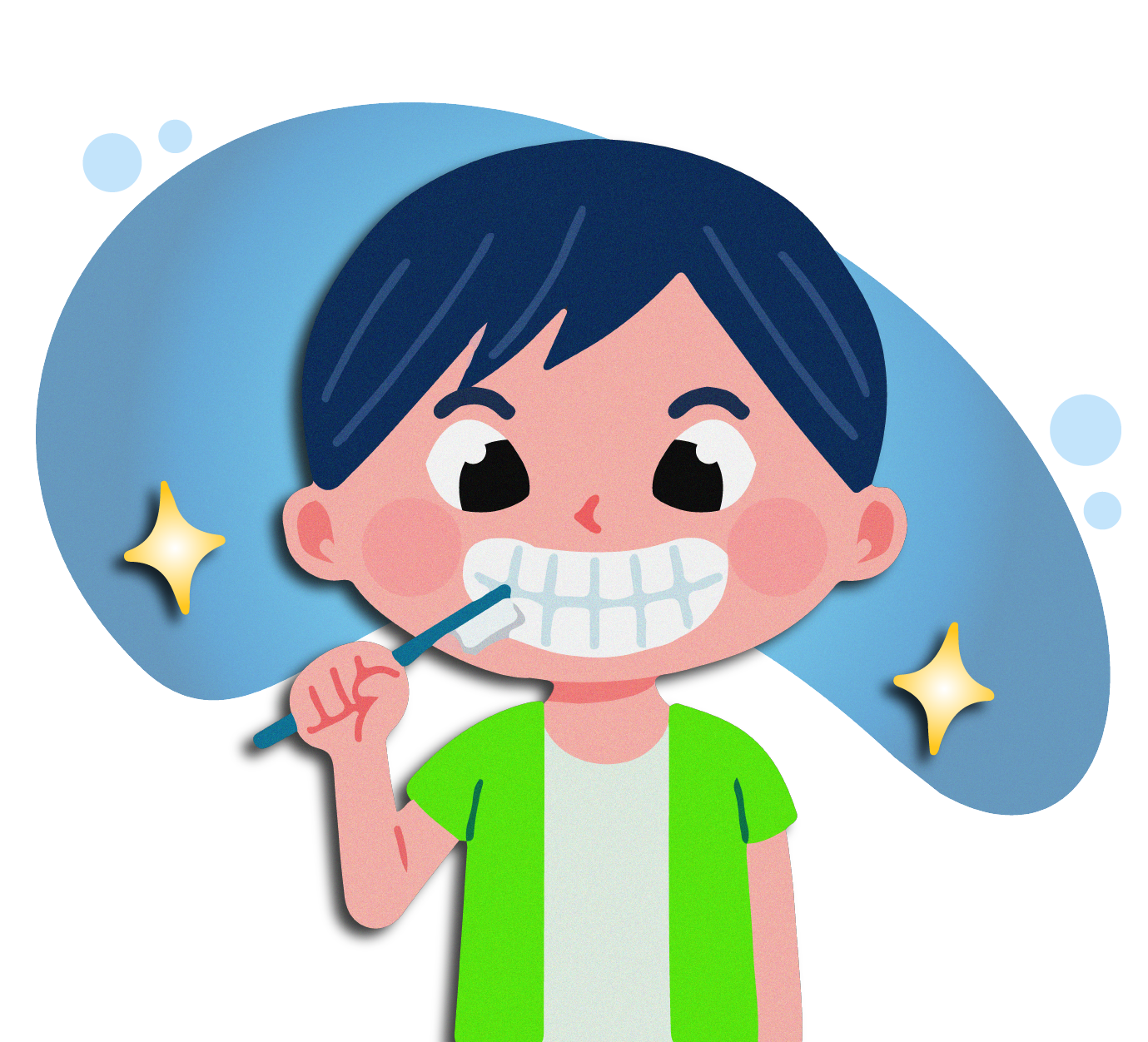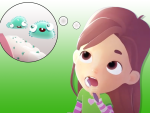
Parents and children go through the uncomfortable time of teething as the child’s baby teeth begin to erupt. Then, parents must help children brush their teeth and visit the family dentist. So, what is the big deal? These are just baby teeth. They eventually fall out and are replaced by permanent/adult teeth. Why go to all this trouble?
Not so fast – baby teeth are important, too!
Even though we lose our baby teeth, they are still very important to the development of our adult oral health. Our baby teeth serve several purposes: they allow children to eat, speak, smile, and save room for permanent teeth to replace them.

How are baby teeth different from our permanent teeth?
- We start with 20 baby teeth and eventually have 32 permanent teeth.
- Baby teeth are smaller than permanent teeth.
- Our permanent teeth are much stronger than our baby teeth.
Timeline:
- The average child has all 20 baby teeth erupted in the mouth by age 3.
- Children start to lose their baby teeth between the age of 6-7 and should lose their last baby tooth by age 10-12.
- Most adult teeth should erupt into the mouth by age 12-13 with the third molars (wisdom teeth) arriving between the age of 18-21.

Caring for baby teeth
Caring for baby teeth is just as important as caring for permanent teeth. Baby teeth can still get cavities, infections and abscesses. Baby teeth that have cavities and are not treated with fillings may need to be extracted, resulting in a loss of critical spacing needed for the permanent teeth, possibly leading to a need for orthodontic care.
- Once the first tooth arrives, start brushing with a soft-bristled toothbrush.
- Visit your dentist within 6 months of the first tooth eruption or by age 1.
- Start flossing once teeth begin to touch.
- By age 5-6, your child should be able to brush their own teeth with supervision and help when needed.
Not so different...
They are not entirely different - both baby and permanent teeth have enamel, dentin, nerves and roots!
Regular visits to the dentist are essential for both baby teeth and permanent teeth. Your dentist and hygienist will help you and your child take expert care of your teeth and work with you to keep your smiles healthy.
This information in this post is for general educational purposes only and does not warrant or represent any information as related to health as specifically appropriate for you. It is not intended to be medical advice or replace the relationship that you have with your health care providers. You should always seek medical advice on any diagnosis or treatment from a qualified health care provider. The information is provided “as is” without any representations or warranties, express or implied.







